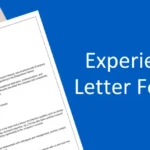One of the most common mistakes that any company makes is not taking an exit interview when any of their employees leave. The importance of an exit interview is undeniable as it lets the company get a clear insight into what their employees liked during their tenure, and what they didn’t.
This gives a chance for the managers to work on the areas they might be lacking. This article will highlight why exit interview should be conducted and what are the questions or templates that should be explored.
First things first, let’s cover the basic question, what exactly is an exit interview? An exit interview is a procedure to wind things up with an employee once they have resigned or been terminated.
Exit interview questions disclose the employee’s honest feelings about the company, and what is the reason for their departure. Not all companies hold an exit interview, and they have no idea what they are missing out on.
These insider questionaries’ offer a more candid and honest response thanexit interview templates what existing employees might share in their feedback or surveys. This makes the exit interview a way to know the problem areas in the company or its workers.
This information can be put to use for improving and guiding future practices. Starting initiatives such as altering the hiring process or coaching the team leaders can help in increasing employee retention and lower the turnover rates.
Creation Of An Exit Interview Template
The next important thing to consider while conducting an exit interview is preparing its template. Believe it or not, it comes in handy when you have to ask varied questions to cover all the pertinent topics.
Creating an exit interview template is idyllic as it helps you make most of the process. The employees’ candid responses are stored and organized in an orderly fashion, which enables you to capture and use the information strategically. Given below are the top 4 reasons why an exit interview template is beneficial;
-
All Crucial Topics Are Covered
Your company can first brainstorm and come to a decision as to what topic or area of your business is really pertinent, and you can make the template focused on that. For instance, if HR has received a lot of complaints regarding communication gaps, you might want to pay heed to that issue first, and include it in your template as well, to see if you are progressing.
-
Productive Conversation
A template ensures that the employee who is exiting the company follows the flow of questions. Many times employees might just get excited and frail off the topics that actually need to be covered. Due to this, the exit interview will go in vain. A template focuses on crucial topics rather than allowing unrelated tangents to take over.
-
Consistency
Using a similar exit interview template makes sure that the policy of your company is upheld by asking everyone identical questions. This signifies impartiality and makes it conducive for the manager to see a pattern.
-
Beforehand Preparation
Unlike a hiring interview, exit interviews don’t have to be scary and daunting. By maintaining a template, you can give the employees ample time to think about their answers, because of which the answers given by them will be on point about exactly how they feel.
Types Of Exit Interviews
You can either ask the employee orally or give them a form that covers all the pertinent questions and provide them with ample time to fill it up and get back to you. Or you can do both, by asking them to fill out the form first, and then discuss their answers in depth. Few basic questions should always be covered in the interview, such as;
- Reasons for leaving
- Company culture
- Job circumstances
- Work environment
- Technology
One can tailor the questions according to the company’s industry and culture, below are some generic questions that can be asked in-depth-
- What made you take the decision to leave, or why did you start searching for other jobs in the first place?
The answer might vary from person to person, many will give reasons such as they got a better offer somewhere else, or they might share their thoughts on how they expected better from the company, like maybe better commute, or more flexible hours.
These are the basic answers, but having said that, many people also leave a company due to toxic reasons, such as discrimination or work harassment. Such sensitive information must come to light. Once the employee has left the company, they don’t have anything to fear, so there is a fair chance they will open up about it.
And once the data is gathered, ensuring that all the negative points are dealt with should be the employer’s priority.
- Were you satisfied with your job during your tenure? If not, why?
This question the most idyllic one especially if your organization has a high turnover rate to hire new employees. Answers can showcase how efficiently your job displays, interview process, and onboarding provide an insight into your company.
- How was your relationship with your manager/team leader?
This is the spot-on question that demonstrates the importance of exit an interview. While employees are working in the organization, they will never speak ill about their managers thinking that it might affect their careers.
But once they have exited, there are no strings attached. This is when HR should take the opportunity to figure out who are the best leadership examples and who can use another round of management lessons.
- Were you clear on the goals and objectives of your role?
Any company’s success is driven by how much the employees understand and align their goals with that of the organization. The degree to which employees feel connected and loyal shows if the strategy is working or not.
- What was the best and worst part of your experience here?
Each person has a different mindset and expectations, therefore something that is a boon for one might be a curse to another. However, it is still important to know how their journey was with your organization. It will help you in highlighting the areas that lack energy and devise strategies that can make that role more interesting for the next hire.
- Did the feedback help you grow?
This response can reveal recurring themes about how the employees visualize the company. You might uncover the core weak and strong points of your work culture.
- What did you like the most about this company?
How secure or insecure people feel in their workplace can tell you a lot about the company. Something as small as a seating arrangement can impact an employee’s work life. Such responses should be taken into consideration and should be worked upon into the work culture of new hires.
- Is there anything you would want to recommend to make the company better?
This is one of the questions when it comes to an exit interview. Any employee would feel important that they were asked this question, no matter their role. They will speak candidly about their experience, which will help you build your future exit templates.
If you don’t want to overwhelm the employees or the HR with such detailed questionnaires, you can always go for a multiple choice question form. In those forms, you can ask various questions, including those mentioned above, by asking the employees to score them from a scale on a scale between 1 to 10.
Takeaway
Exit interviews can help a company trot out crucial data that can help them in improving by getting a clear understanding of how employees view their workplace. Moreover, using a detailed and relevant exit interview template ensures that you are collecting the specific and relevant data needed. Based on the employees’ responses and feedback, you can become successful in creating a work culture of which every employee wants to be a part for the long haul.
Additionally, they also provide the employees a sense of closure, in which they feel that their opinions and feelings were valued. With this in mind, they will surely think highly of your company and recommend it to their friends and family.
To read more blogs on how hiring processes can be improved, read our Pocket HRMS blogs here.








